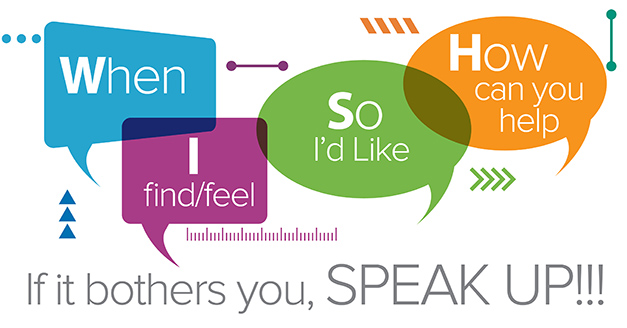
If we don’t speak up when someone has done something that upsets us (violated our boundaries), then resentment and anger can build and negatively affect the relationship. We may be cold, distant, or short with the person . . . and they have no idea why.
Yes, there is a dialectic here. Not all infractions need to be addressed. In fact, most minor annoyances can be ignored. If it does not bother you in an hour or the next day, then there may not be cause to address it. These are the things that we can “let go.”
However, if bad feelings are building up, or we feel the need to gossip about the situation, these are clues that the problem is affecting the relationship, and it needs to be addressed.
Use assertiveness skills to approach the person from a position of mutual respect. Be polite, understanding, and kind while simultaneously expressing your feelings, interpretations, and solutions for the problem. Be willing to hear their perspective. Engage in open conversation and negotiation. It often involves compromise and a willingness to not get all that you want.